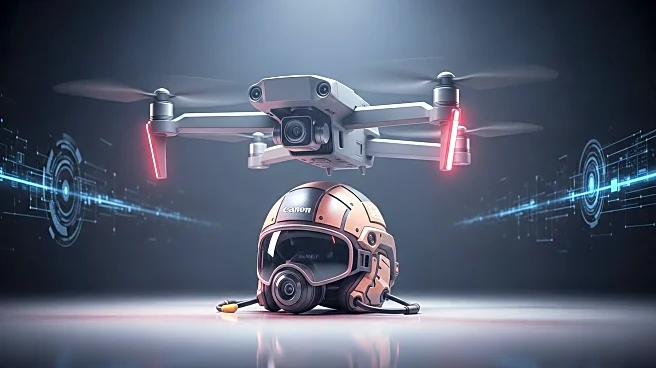What's Happening?
A new wave of defense technology startups in Silicon Valley, known as 'neoprimes,' is attracting billions in funding and reshaping the landscape of America's national security. Companies like Anduril Industries, recently valued at $30.5 billion, are challenging the dominance of traditional defense contractors such as Lockheed Martin, Northrop Grumman, Boeing, General Dynamics, and RTX. These startups are characterized by their agility, focus on software, and ability to address critical technology gaps important to national security. The U.S. Department of Defense has identified several key technologies, including hypersonics, energy resilience, space technology, integrated sensing, and cyber, as essential for future conflicts. The shift in focus from counter-terrorism to high-tech, multi-domain conflicts has driven the demand for new technologies that extend beyond traditional land, sea, and air warfare to include cyber and space domains.
Why It's Important?
The rise of these Silicon Valley 'neoprimes' signifies a significant shift in the defense industry, where traditional contractors are being challenged by more nimble and innovative startups. This trend could lead to a more competitive and technologically advanced defense sector, potentially enhancing national security. The influx of venture capital into defense tech startups, which totaled about $38 billion in the first half of 2025, indicates strong investor confidence in these new players. The development of dual-use technologies, which have both commercial and military applications, could also drive innovation across multiple sectors. This evolution in the defense industry could lead to more efficient and effective solutions for national security challenges, benefiting both the military and the broader economy.
What's Next?
As these startups continue to grow and attract investment, they may increasingly influence the direction of U.S. defense policy and procurement. The Department of Defense's interest in dual-use technologies suggests a potential shift towards more integrated and versatile solutions. This could lead to increased collaboration between the government and private sector, fostering innovation and potentially reshaping the defense industrial base. The continued success of these startups may also prompt traditional contractors to adapt and innovate to maintain their competitive edge.
Beyond the Headlines
The emergence of 'neoprimes' raises questions about the future of defense contracting and the role of technology in warfare. The integration of artificial intelligence and autonomy in military applications could have profound ethical and strategic implications. As these technologies become more prevalent, there may be increased scrutiny and debate over their use in combat and surveillance. Additionally, the reliance on dual-use technologies highlights the need for robust cybersecurity measures to protect sensitive information and infrastructure.










